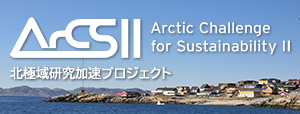Summary
We will synthesize information from completed and ongoing regional studies conducted by Japan, USA, and Norway to examine how variability and trends in advection, temperature, sea-ice dynamics, and ocean acidification in the Subarctic to Arctic transition zone may affect future marine ecosystems of the Pacific and Atlantic Arctic, their resource management, and socio-economics. We will investigate how Arctic fish populations and their prey may respond and adapt to multiple environmental stressors and how their responses may affect existing and future fisheries, subsistence harvests, fisheries management, and the socio-economic systems that depend upon them. We will bring together natural and social scientists, with stakeholders from the fishing industry, regional management bodies, governments and coastal communities in at least three workshops to assess whether the biological, management and socio-economic systems have the resilience and adaptive capacity to cope with anticipated changes. These workshops will: 1) review and synthesize impacts of climate change on components of Arctic marine ecosystems; 2) compare and contrast the impacts in the Atlantic and Pacific sectors of the Arctic; 3) identify major issues of concern, including threats and opportunities, from both biological and socio-economic perspectives; 4) review the ability of current management frameworks to adapt to likely future changes; and 5) assess the resilience and adaptive capacity of fish, fisheries, other living resources, resource-dependent communities, and management institutions to future climate change. In each workshop, investigators will review and synthesize results from the different national research projects that are most relevant to addressing workshop objectives. Workshops will build on each other with the third workshop identifying and beginning the writing of synthesis papers for primary journals, and short summaries.








